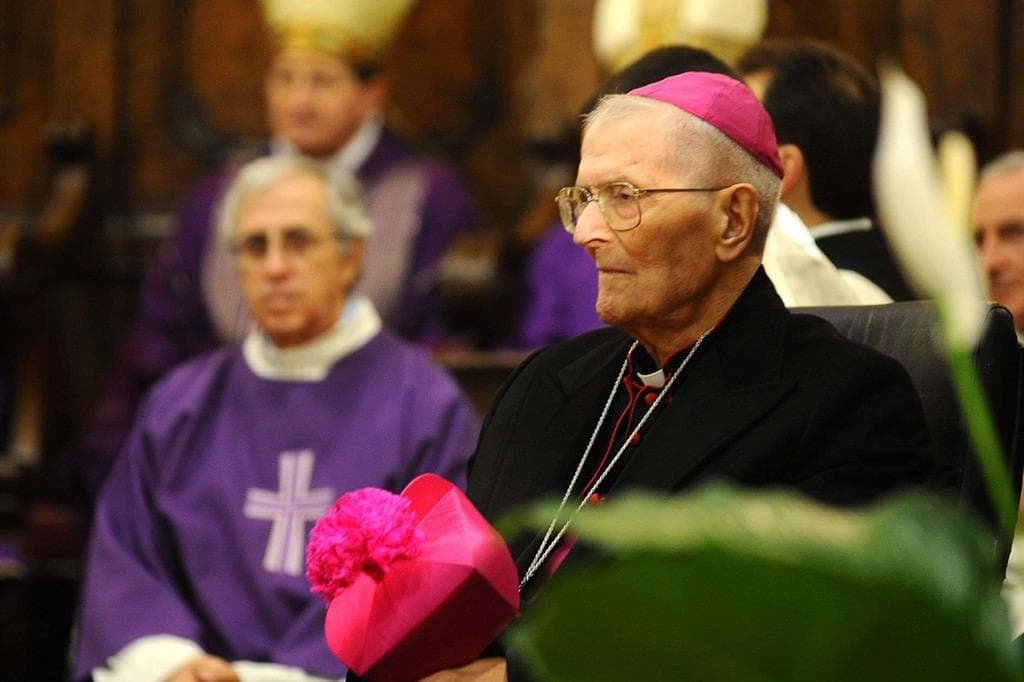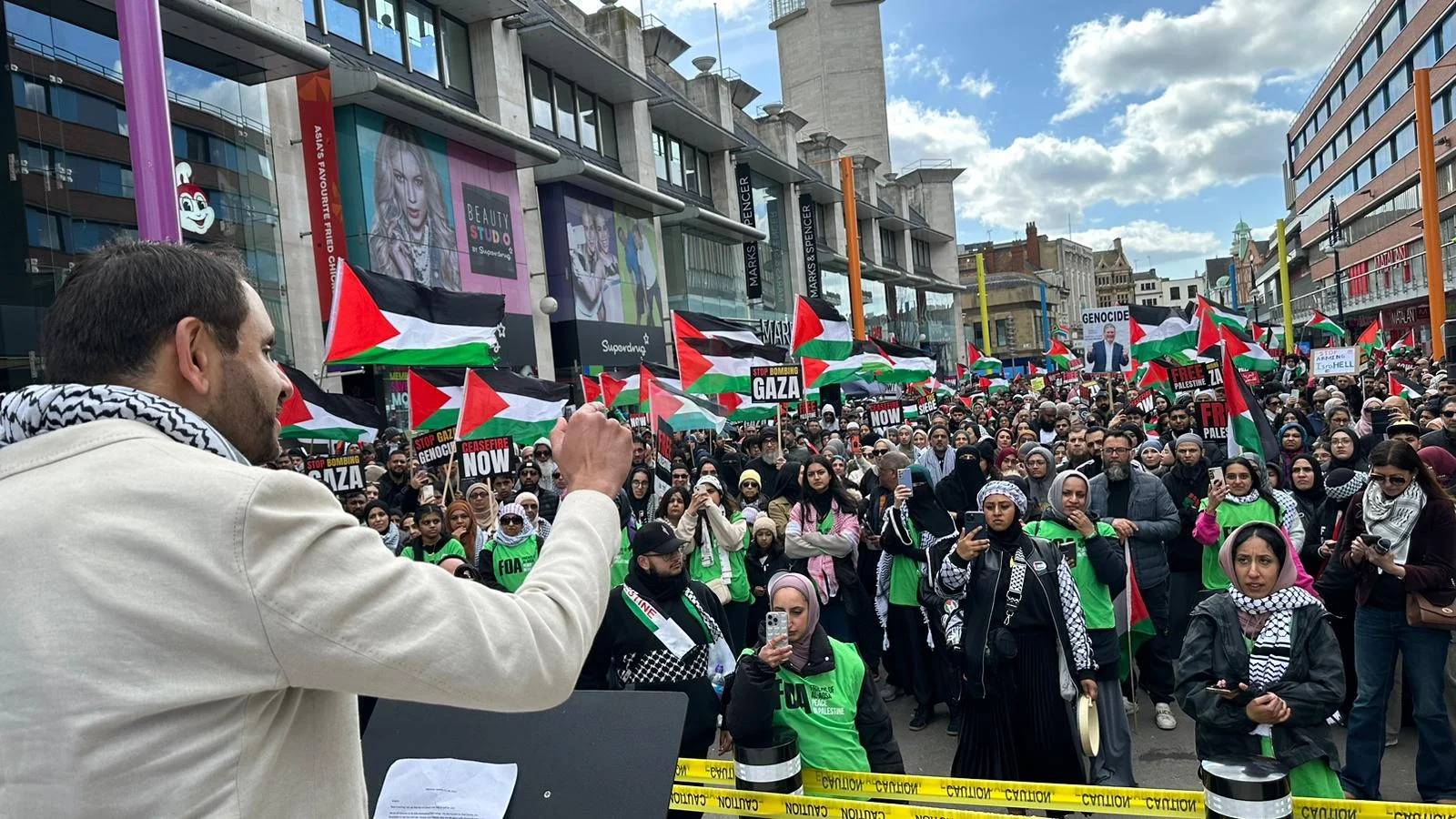Though it sounds terrible to say out loud, generally speaking, the death of a Catholic bishop doesn’t really rate as a news story anywhere outside his own diocese. Most bishops aren’t towering public personalities, and besides which, with more than 5,000 bishops in the world and an age profile that skews old, deaths just aren’t that uncommon.
In the month of June 2017 alone, ten bishops passed away in various parts of the world, and seven more went to their reward in July. Of that group, really only the death of German Cardinal Joachim Meisner became a global headline, and that’s in large measure because Pope emeritus Benedict XVI sent a message to the funeral that got attention because one line was interpreted in some quarters as a dour assessment of the state of the Church.
To be clear, Benedict’s closest aide later said people who took the line as a criticism of Pope Francis are, and I’m quoting here, “stupid.”
RELATED: Benedict aide: It’s a ‘fantasy’ and ‘stupid’ to use him against Francis
All this comes to mind because of the death on Thursday, August 3, of Bishop Giovanni Benedetti, the former shepherd of Foligno in central Italy from 1976 to 1992. Benedetti was 100 years old at the time, and had been the oldest bishop in the country since May 2016, when Cardinal Loris Capovilla, the former priest secretary to St. Pope John XXIII, passed away.
It occurred to me that probably no one outside Foligno was going to write any retrospectives on Benedetti, because he never sought a high media profile despite taking a keen interest in the press (he once edited two different Catholic newspapers). Anyway, Italian commentators are now more focused on the August 5 death of Cardinal Dionigi Tettamanzi, since he led the Archdiocese of Milan and was considered at one stage a front-runner to become pope.
RELATED: Progressive champion once seen as papal candidate dies in Milan
That’s too bad, because Benedetti was illustrative of several truths about Catholic bishops that often go unacknowledged or under-appreciated.
First of all, Benedetti was an accomplished theologian. He was a passionate disciple of Henri de Lubac, the great French Jesuit who was among the key figures at the Second Vatican Council, and Benedetti played an important role in making Lubac’s thought known in Italy.
He also published several works on the mystical writings of Beata Angela of Foligno, a 13th century Franciscan tertiary who’s known as the “Mistress of Theologians,” and who was canonized by Pope Francis in 2013 using the “equipollent” option, meaning without a miracle, in recognition of her long-standing veneration.
In a statement after his death, the bishops of Umbria recalled one of Benedetti’s favorite lines about theology: “Rather than always giving answers,” he said, “theology should raise questions and stir reflection.”
Despite his erudition, Benedetti had a strong common touch. As a local bishop, he emphasized being close to his people.
At one point during his tenure, he stood shoulder-to-shoulder with workers protesting the closure of a renowned local sugar factory. Perhaps his signature initiative was holding a diocesan synod from 1986 to 1991, intended to bring the voice of the people to bear on the implementation of Vatican II in the diocese and future pastoral plans.
“As a bishop, I was never political,” Benedetti once said. “But I always tried to make my presence felt among the people, standing with them and defending them when necessary.”
Another Benedetti hallmark was the willingness to talk to anyone, always presuming the goodwill of the other party.
“I always spoke to everyone,” he said, “because I felt strongly that whoever was in front of me was, before anything else, a human being.”
Perhaps the best-known form that openness took came back in the 1970s, when Benedetti agreed to give an interview to a Soviet news agency, at a time when the Communist party was still a vital political force in Italy and talking to a Soviet was considered heresy by some.
I met Benedetti a couple of times back in the 1990s at theological gatherings in Rome, shortly after he retired from Foligno, and was struck by his gentleness and lack of pretense, despite his impressive résumé.
In Catholic parlance, we often speak of “the bishops” as if they’re one indistinguishable aggregation: “The bishops are weak,” “the bishops are out of touch,” “the bishops are an old boy’s club,” and so on. As novelist John Sandford memorably put it, what makes Catholics different from holy rollers is that we don’t scream about Jesus, we scream about the bishops.
In reality, anyone who actually knows Catholic life realizes that the idea of “the bishops” is a myth, because there’s no such animal. Bishops don’t all think alike, they don’t all act alike, and they don’t all live and die alike.
Strikingly often, they’re decent men trying their best, by their lights and experience, to serve the Church and the world of their time. Most may not attract a lot of fanfare, they may not be publicly inspirational figures or visionaries, and God knows they don’t always get things right, but, like Giovanni Benedetti, our lives are generally richer for having known them.
So, Monsignore Giovanni, requiescat in pace … and, if you’re listening, throw in a good word for me with Beata Angela, will you?
















